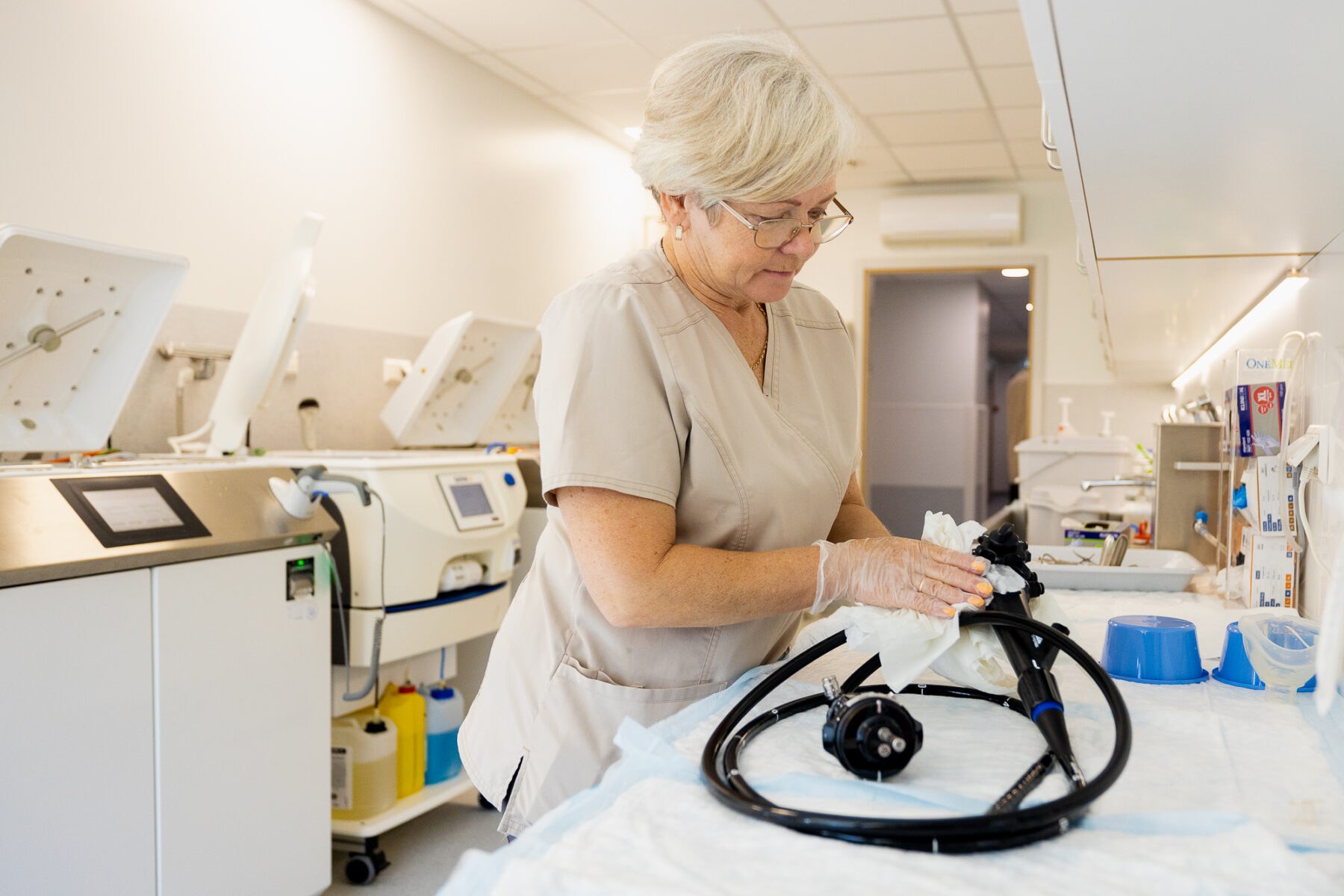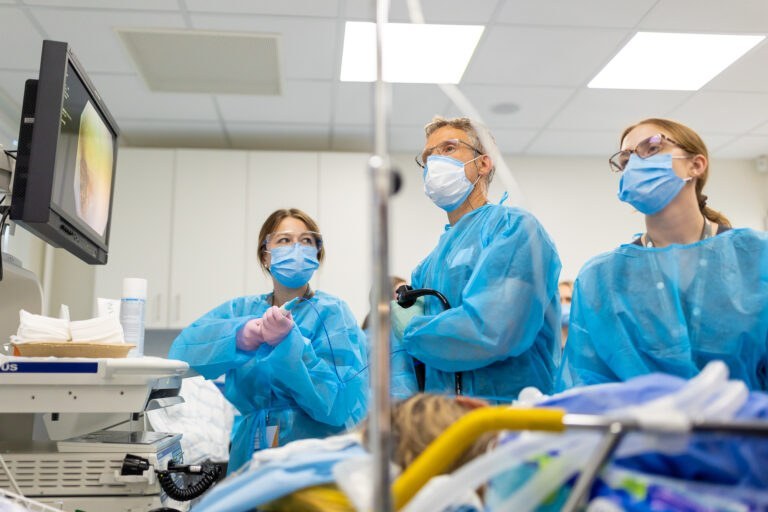Taking care of the digestive system is taking care of your overall health!
Expert advice
Each of us wants to live a comfortable, convenient and fulfilling life. This statement is an axiom that, as they say in mathematics, does not even need to be proven. But the convenience, comfort and fulfilment of our lives largely depend on the most important thing – health. For maintaining health, there are several areas that most directly affect the comfort and well-being of our lives. One of them is the health of the digestive system.
Therefore, caring for the health of the digestive system should definitely be put on the list of priorities when thinking about our health. Members of the Latvian Health Tourism Cluster, Gastro Center, can definitely help clients not to get used to digestive system ailments and problems. What should be done to prevent this from happening?
The basis of the basics: prevention and regular check-ups
It is no secret that it is much easier for a person to prevent the development of diseases than to fight an “initiated” ailment. Therefore, the basis of the modern approach to protecting one’s health is prevention and regular health checks. In comfortable conditions, using the most modern technologies, both preventive digestive tract examinations and procedures that protect and improve the health of your digestive system can be performed. Doctors recommend regular examinations to detect potential problems in a timely manner.
One of the most important procedures in both – diagnostics and solving existing digestive tract problems is endoscopy. Endoscopy is a modern diagnostic method that allows the doctor to look inside the patient’s body using a special instrument – an endoscope.
An endoscope is a probe with a camera at the end that transmits an image to a monitor. This method is less invasive than surgery and allows the doctor not only to visually assess the health of the gastrointestinal tract, but also to perform various manipulations, such as taking biopsies, removing polyps or stopping bleeding. There are several types of endoscopies in gastroenterology, the two main ones are upper (the probe is inserted through the esophagus) and lower or colonoscopy (the probe is inserted into the rectum, examining the condition of the intestine).
The Gastro Center also offers capsule endoscopies, which are one of the most modern diagnostic methods in the world. Capsule endoscopy is an examination of the small intestine from the inside to assess those parts of the small intestine that are not accessible with standard endoscopy methods.
In addition, the clinic also offers EUS (endoscopic ultrasonography). EUS combines endoscopy and ultrasonography technologies, allowing for an accurate assessment of the condition of the esophagus, stomach, duodenum and other organs of the digestive system. This method is especially useful for detecting tumours, cysts and other pathologies in deeper tissue layers.
It is also possible to perform ERHP (endoscopic retrograde cholangiopancreatography). ERHP is a diagnostic and at the same time therapeutic procedure used to detect and treat diseases of the bile ducts and pancreas. The procedure is performed under X-ray control, allowing for the removal of stones, dilation of strictures or insertion of stents.
Why you should not be afraid of an endoscopy?
Often, patients have a very sensitive attitude towards endoscopy, because people’s collective memory still contains the “experience” of the last century, when endoscopy was performed with technologically simple endoscopes and instruments, in today’s assessment, without using general anaesthesia, which caused discomfort in patients and was often painful.
But there is no reason for a concern – the technologies at the disposal of the clinic staff ensure both patient comfort and high quality of examination, and endoscopies are performed under anesthesia, which ensures that the patient experiences minimal emotional and physical discomfort. Before the procedure, the clinic staff will provide you with extensive information on how to prepare for the procedure in order to minimize any discomfort.
The Gastro Center highly values the importance of prevention, early diagnosis and timely minimally invasive therapy, minimizing the patient’s need to be hospitalized even after the most complex operations.
What should be considered when applying for an endoscopy?
Of course, endoscopies require proper preparation in advance. Proper preparation also ensures high examination and diagnostic quality, which is especially important for the patient himself.
To understand in more detail what should be considered when preparing for an endoscopic examination, we invite you to familiarize yourself with the infographic, which describes how to properly prepare for a colonoscopy. But in any case, when applying for an examination, customer service staff will explain in detail to each client what should be considered and done during the pre-procedure period.

Digestive system-related services
Over 20 years, we have become convinced that it is very important to ensure interdisciplinary cooperation between doctors in order to be able to comprehensively assess the health status of each of our patients and provide the most personalized treatment in case of problems. The overall health of a person is determined by the complex interaction of human organs, so often, for example, digestive system disorders are caused by damage to some other organ system. And, of course, vice versa – disorders in the digestive system can cause problems in the liver, kidneys, cardiovascular systems.
The Gastro Center offers consultations in several medical fields to make complex diagnostics as convenient and accessible to the patient as possible in one place. Plan your visit in time to ensure all the necessary examinations to determine your health status.
The clinic provides high-quality medical care that meets international standards, offering an individual approach to each patient.

Gastro centrs contacts:
Address: Gaiļezera Street 1, LV-1079.
Email: info@gastrocentrs.lv
Phone number: +371 66901212
Website: www.gastrocentrs.lv
More information about gastroenterology services in Latvia is available here!


- Choose a service
- Fill out the form
- Receive an individual response